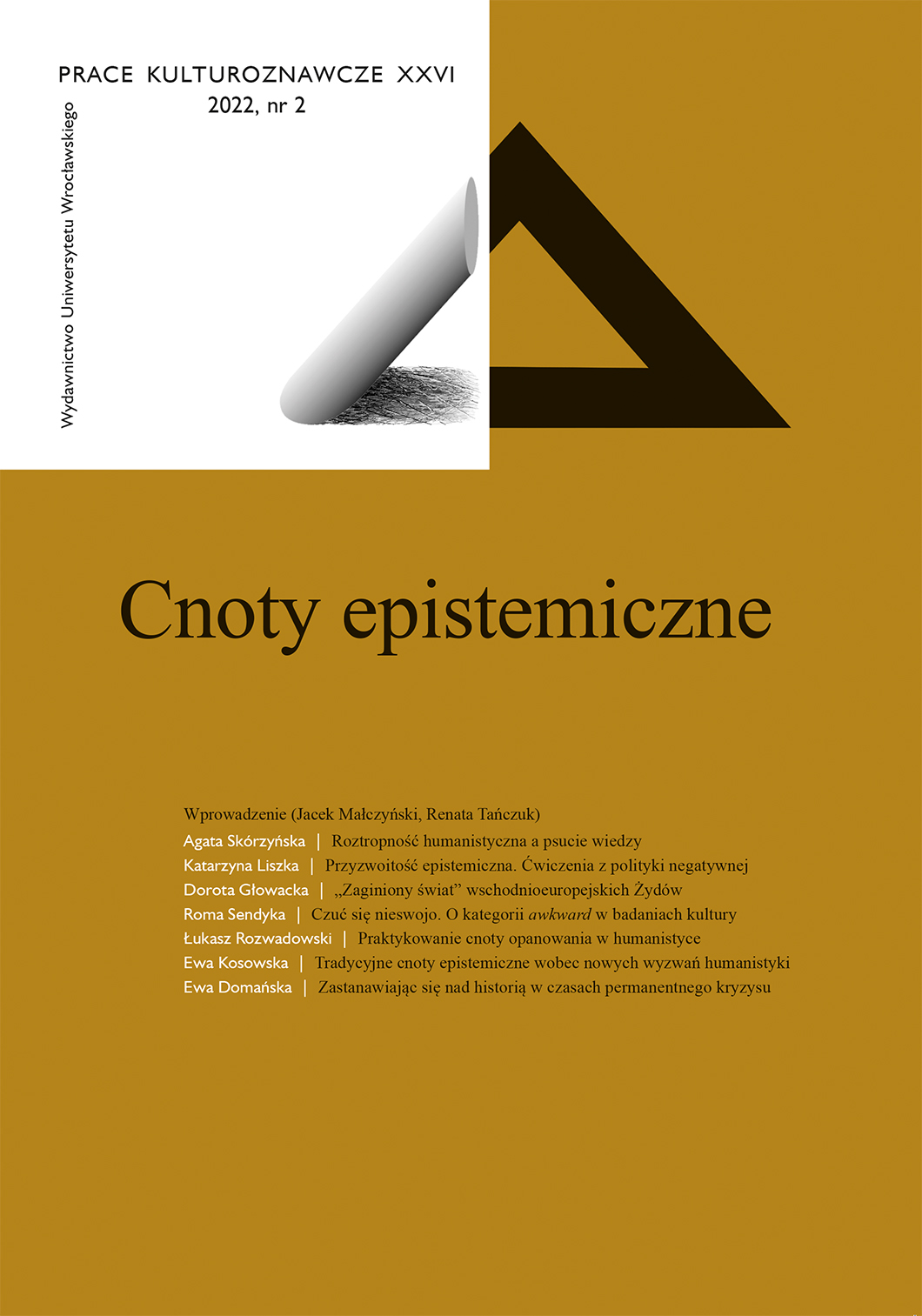Roztropność humanistyczna a psucie wiedzy. Dyskusja z koncepcją „epistemic values” z pozycji kulturoznawczo zorientowanej filozofii nauki
Humanistic prudence (phronesis) and the corruption of knowledge: Discussion with the concept of epistemic values from the point of view of culture-oriented philosophy of science
Author(s): Agata SkórzyńskaSubject(s): Sociology, Sociology of Art
Published by: Wydawnictwo Uniwersytetu Wrocławskiego
Keywords: Epistemic virtues; trust; cognitive authority; phronesis; style of thought; thought collective; ideal of scientific cognition; spoils of knowledge; consensus in science
Summary/Abstract: In the article, I discuss the concept of “epistemic virtues” by Linda Trinkaus-Zagzebski, taking the point of view of the culture oriented philosophy of science and the sociology of knowledge. I argue that the project of epistemology focused on ethical values, promoting such categories as epistemic authority, is not able to effectively solve the problem of social trust in the claims of science, because — despite the declaration of an Author — it does not develop assumptions about the collective origin of scientific cognition. Reaching for the category of a thought collective (L. Fleck) or the ideal of scientific knowledge (S. Amsterdamski), I’m trying to show that basing the concept of scientific cognition on an individualist approach to ethics is not enough in view of the complexity of the achievements of contemporary science. One of the sources of the misunderstanding is, in my opinion, the category of phronesis understood reductively by the author of Epistemic Values. For this reason, I oppose the Trinkaus-Zagzebski proposal with reinterpretations of the concept of phronesis in the humanities after the so-called ontological turn (i.e. in the proposal of, among others, A.W. Nowak and myself). The issue of scientific consensus becomes an illustrative problem here — using the findings of the philosophy of science and studies on science and technology, I try to show that scientific consensus is born as a result of collective processes, dependent on the styles of thinking dominant in science (following L. Fleck). Today, one of the elements of the hegemonic style of thinking is the phenomenon of “corruption of knowledge” (following C. Crouch), which means that the concept of phronesis should be understood primarily as an ethical obligation to disseminate knowledge about the social determinants of scientific consensus, and not as individual moral dispositions for its acceptance.
Journal: Prace Kulturoznawcze
- Issue Year: 26/2022
- Issue No: 2
- Page Range: 15-39
- Page Count: 25
- Language: Polish

